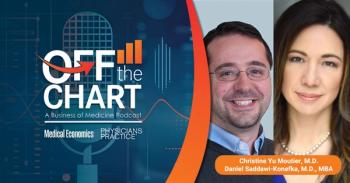Healthcare delivery is inherently complex, unpredictable, and challenging. Set against the backdrop of a global pandemic, those pain points become exacerbated. On a daily basis, clinician teams and administrators are faced with multifaceted responsibilities and demands for time, attention and compassion that can lead to stress, fatigue and burnout. Contact with ailing patients and their relatives creates further complexities, potentially impacting psychological and physical health, quality of life and performance.
Prior to COVID-19, a national survey from the American Psychological Association reported that 75% of American adults continue to report high stress levels, with little accessibility to a feasible stress management program. Popular free and low-cost consumer “stress” and “mental health” apps are rarely medical grade and, disturbingly, too often profit from sharing personal data.
The toll of persistent stress response
The adverse effects of chronic stressors are particularly common in humans. Our high capacity for symbolic thought may elicit persistent stress responses to a broad range of adverse living and working conditions. People attempt to cope, but too often learn maladaptive patterns of coping to stressors, such as worrying, anger, rage responses, overeating, poor sleep habits, and substance abuse.
Common physical manifestations of stress are among the most frequent reasons people seek care in medical settings. In a meta-analysis of the literature on stress and immunity in humans, the results offer substantial evidence that chronic stress triggers inhibitory impact, even at immunological cellular levels (e.g. mitogens for normal cell proliferation, natural killer cells, cytokines, etc.). In other words, there is a clear relationship between stress and decreases in functional immune measures, including the body’s ability to fight off inflammation, viral infections, and tumor development.
The persistent stress response triggers a cascade of changes in the nervous, cardiovascular, endocrine, and immune systems. Extensive research reveals associations between chronic stress and cardiovascular disease, upper respiratory disease, exacerbations of autoimmune disease, diabetes, gastrointestinal disorders, weight gain, insomnia, headaches, irritable bowel, and back pain. It is also well known that the onset of depressive episodes may relate to occurrences of major negative life events, as well as stressful life events preceding the development of anxiety disorders.
Importantly, lifestyle behaviors such as smoking, substance use, proneness to accidents, insomnia, inactivity, and eating disorders, have been identified as other consequences of stress, with adverse linkages to health. A vicious cycle of stress, maladaptive coping mechanisms, unhealthy lifestyle behaviors and increased stress sets in.
A path forward: evidence-based, personalized training programs
Harnessing humans’ high capacity for symbolic thought is at the core of the most effective interventions for retraining the brain towards resilience. An evidence-based, personalized training program could offer those in high stress environments with an active-learning tool that harnesses the brain's complex capacity to change how the brain responds, adapts, learns and recovers from stressors and challenges. Resilience training programs based on Acceptance and Commitment Therapy (ACT) with an innovative integration of cognitive behavioral models and mindfulness exercises, are commercially available to help high stress clinical teams build resilience to reduce burnout, improve decision-making, communication and performance.
A body of research with healthcare workers and others in high stress occupations over nearly two decades demonstrates significant benefits with these approaches. Mindfulness is strongly and consistently correlated to psychological and physical health. Employees who show psychological flexibility, are more likely to show greater openness to the acceptance of setbacks in the working environment and to carry on their valued living and working path. This seems to correlate positively on individual wellbeing. Data shows that a flexible and mindful attitude toward difficult psychological events aids responsiveness to changes and the ability to work more effectively. Mind-body interventions have been shown to substantially reduce healthcare utilization at relatively low cost and can serve as a key component in any health care delivery system. In addition, such interventions are inexpensive relative to the cost of hospitalization or even other complementary and alternative (CAM) therapies.
Conclusion
Research shows that workplace programs that address coping with stress report reduced illnesses and healthcare use, improved psychological and physical symptoms of stress, improved performance, and decreased employee turnover, among other benefits. Utilizing a resilience training program in times of high stress that integrates leading intervention strategies can harness the brain’s complex ability to change its response to stressors, to recover more quickly from stress, and to build resilience. The result is less provider burnout and better health outcomes.
About the authors
Pennie Sempell, JD, is Co-Founder and CEO of StressPal. For over 30 years Pennie has conducted training in stress resilience, health advocacy and conflict resolution in collaboration with medical professionals in both hospital and outpatient settings. A professional mediator and pioneer in integrative health education, she has authored and produced multiple award-winning multimedia tools and curriculum for adults and children in lifestyle and behavioral medicine topics with an interactive focus.
James Monroe, PhD, is Co-Founder and Chief Science Officer of StressPal where he brings more than 30-years’ experience in clinical psychology, providing clinical supervision and outpatient treatment. Dr. Monroe specializes in stress-related and anxiety disorders, medical psychology, relationship discord, pain management and evidence-based therapies, including mindfulness-based Acceptance and Commitment Therapy (ACT) and Cognitive Behavior Therapy.









